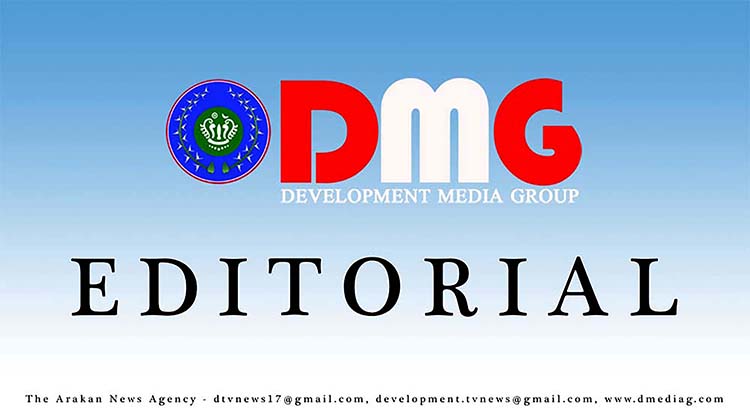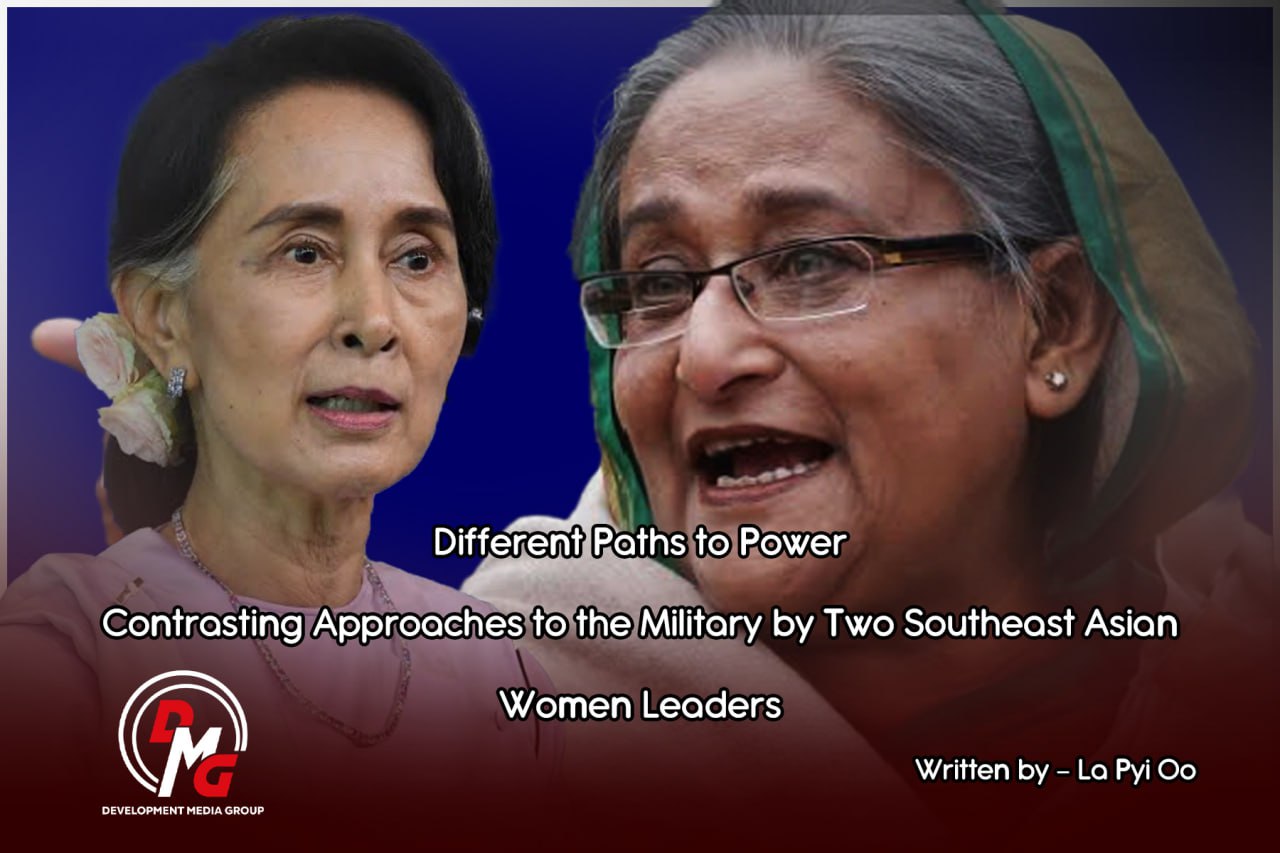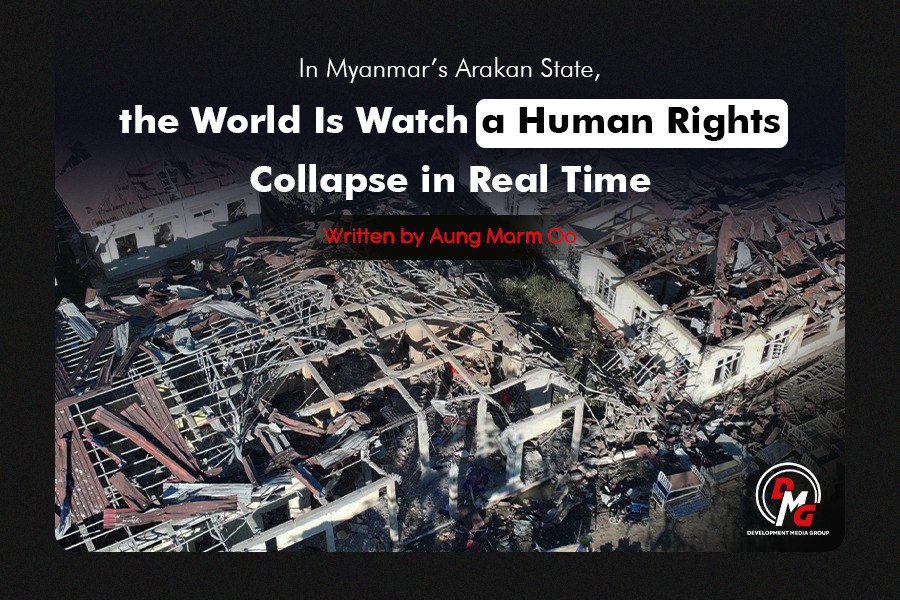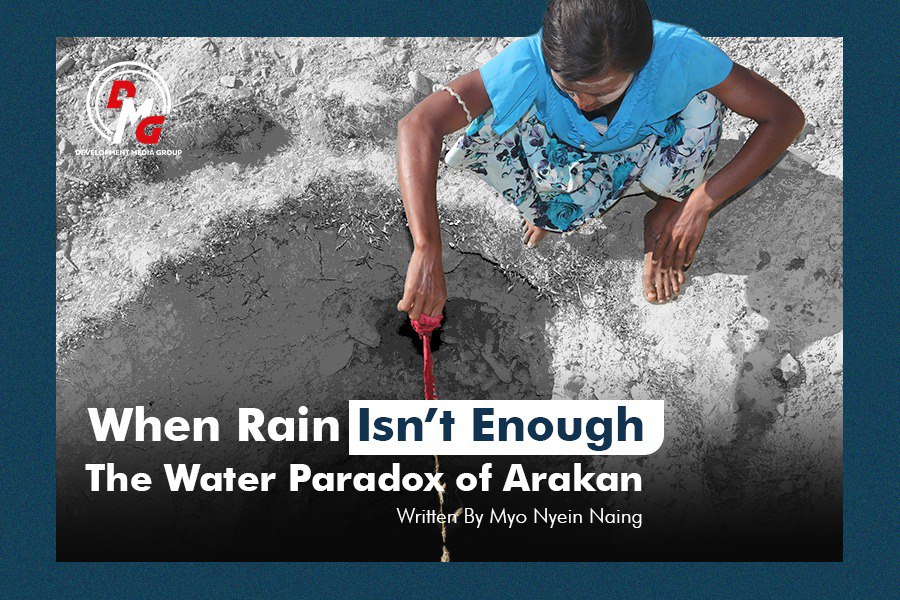- How the Arakan Army Can Engage the Yunus Government Amid Myanmar's Election Push, Border Pressures, and a Deepening Arakan Crisis
- Thandwe civilians sleep in bomb shelters amid junta air attacks
- Nearly 900 civilians killed or injured in Arakan State over one year: DMG tally
- Why did Arakanese politicians lose to USDP candidates?
- How Can the Arakan Army Approach the Yunus Government?
Editorial: A Nobel Peace Prize That Hits Close to Home in More Ways Than One
“Ms. Ressa and Mr. [Dmitry] Muratov are receiving the Peace Prize for their courageous fight for freedom of expression in the Philippines and Russia. At the same time, they are representatives of all journalists who stand up for this ideal in a world in which democracy and freedom of the press face increasingly adverse conditions,” the Nobel Committee said in its statement announcing the awards.
07 Oct 2021

A government operates like an engine with many moving parts, and key components of a government such as its administrative capacity, legitimacy and strategic foresight are among the determinants of overall success. If one or more of the engine’s components malfunctions, it will not be able to run properly.
Looking under the hood in Myanmar, the State Administration Council (SAC) has found it difficult to establish competent governance and legitimacy since it seized power in a military coup on February 1. The verdict is still out on strategic foresight, but the prognosis so far is not good.
The news media is a bridge between a government and its people. Call it the diagnostic system of a modern vehicle, responsible for keeping an eye on the engine, among other parts of the vehicle/nation. It is the job of the media to monitor and comment on the actions of the government. It is also the job of the media to investigate and expose any abuses of power by those in power. Because of these adversarial dynamics, government leaders — not only in Myanmar but across the world — often have negative views of the media.
On October 8, the world saw an affirmation of the important role that the press plays when the Norwegian Nobel Committee awarded its prestigious Peace Prize to two persecuted journalists, including Southeast Asia’s own Maria Ressa.
“Ms. Ressa and Mr. [Dmitry] Muratov are receiving the Peace Prize for their courageous fight for freedom of expression in the Philippines and Russia. At the same time, they are representatives of all journalists who stand up for this ideal in a world in which democracy and freedom of the press face increasingly adverse conditions,” the Nobel Committee said in its statement announcing the awards.
The democratically elected, democracy-espousing and now deposed National League for Democracy (NLD) government was not without flaws in its approach to the media. Under the NLD administration, news outlets that criticised the government were frequently suppressed and multiple journalists were imprisoned. DMG’s own founder and editor-in-chief was slapped with spurious Unlawful Associations Act charges under the NLD government.
Why are so many governments so afraid of the media? Why do they pay lip service to the notion of the press as a fourth pillar of democracy, only to turn around and persecute the news organisations, reporters and editors that make up this pillar? To revert to a previous metaphor, what are the consequences of ignoring a car’s diagnostic system? What are the consequences of disabling a car’s diagnostic system?
The Myanmar junta has been cracking down on local media outlets since it seized power, trying to curb the people’s right to information through threats, intimidation and legal action.
Consider a tactic used by Myanmar governments past and present: trying to punish the media by acting punitively against mistakes or alleged “breaching of media ethics,” whether real or perceived. In a typical scenario, a reporter asks military government officials or local authorities for information on the ground, and these would-be authoritative sources don’t respond, usually by not answering phone calls or declining to comment. Later, action is taken against the reporter or news outlet, with the plaintiff citing a failure to convey the views and information from “both sides,” or similarly disingenuous complaints that fail to take responsibility for the sources’ lack of availability.
Government crackdowns on the media in Myanmar, unfortunately, have become formulaic and unoriginal, but that does not make them any less effective. At this point, it can be said that Myanmar has a long-established tradition of media oppression.
At a recent press conference in Naypyidaw, only a handful of reporters covered the event, showing how much public trust in the military as a government has declined (from an already low pre-coup baseline).
The Arakan State Administration Council is following in the footsteps of the junta, as one might expect in any military chain-of-command. Arakan State officials under this regime often attempt to use the media as a messenger at its press conferences, boasting about their actions in hopes that they will be uncritically quoted, as is the treatment they enjoy in state-run media. When reporters ask difficult questions or seek important information in the public interest, the answers are rarely satisfying, if an answer is given at all.
Ruling authorities often have to deal with information from the media, and the media needs to be able to obtain information from authority figures. A government that ignores the media and the people will never win the trust of either.
Why is that important? Because, as the chair of the Nobel Committee said on Friday: “Free, independent and fact-based journalism serves to protect against abuse of power, lies and war propaganda.”
We here at DMG couldn’t agree more.




















